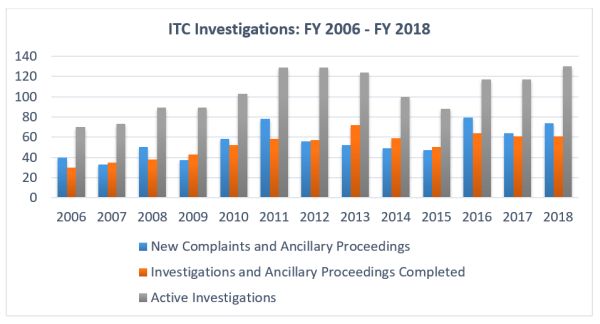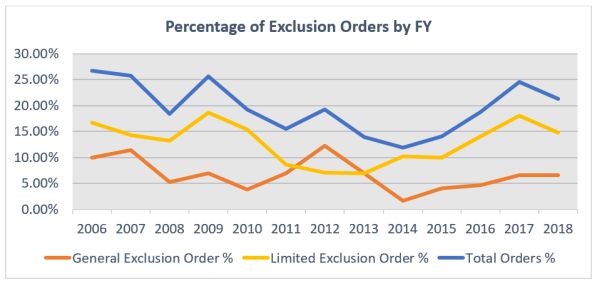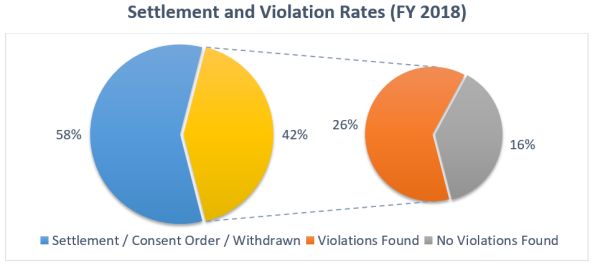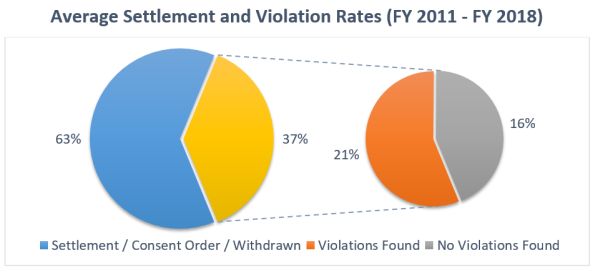2018 marked one of the busiest fiscal years ("FY") at the International Trade Commission ("ITC"). The agency did not receive the record number of filings that it was nearly on pace for halfway through FY 2018, but it did break its record for number of active investigations. A total of seventy-four (74) new complaints were filed in FY 2018. Sixty-one (61) investigations were completed during the same period. Accordingly, the number of active investigations increased from 117 to 130, representing the highest number in the ITC's history. This record previously stood at 129, which was reached in both FY 2011 and FY 2012.

The ITC issued four (4) General Exclusion Orders ("GEOs"), nine (9) Limited Exclusion Orders ("LEOs") and thirty-seven (37) Cease and Desist Orders ("CDOs") in FY 2018. The thirteen (13) total exclusion orders represented 21% of the sixty-one (61) investigations and ancillary proceedings completed during FY 2018, representing the second highest mark since FY 2009.

The ITC also continued to produce complainant friendly results in FY 2018. Without including ancillary proceedings, the ITC considered fifty (50) total investigations in FY 2018. Twenty-nine (29) investigations (58%) either resulted in settlement, ended with a consent order, or were withdrawn. The ITC found violations in thirteen (13) of the remaining twenty-one (21) investigations. Accordingly, only 8 (16%) of the fifty (50) total investigations considered resulted in a no violation determination.

The 16% no violation determination rate was consistent with the average rate since FY 2011. The average settlement rate for investigations since FY 2011 is 63%. Finally, since FY 2011, 21% of all investigations (57% of investigations that did not settle) resulted in a violation determination.

While these statistics reflect that the ITC continues to be an attractive venue for IP litigation, we also expect to see significant statistical changes in FY 2019 due to the government shutdown. Following the government shutdown, the ITC began 2019 with disruptions to section 337 proceedings. A notice (here) posted on the ITC website provides information about the ITC's shutdown plan. The website also indicates that the ITC's Electronic Document Information System ("EDIS") is operating in a read-only capacity and document filing is disabled. Because the ITC will not accept new complaints until appropriations are allocated, it is possible that a record number of complaints could be filed shortly after EDIS becomes operational. Further, the extended period without investigative activities will likely lead to fewer completed investigations in FY 2019. Therefore, it is still possible that FY 2019 will be a busier year than 2018 but it is unlikely that the ITC will be able to complete as many investigations in FY 2019 as it did last year.
The content of this article is intended to provide a general guide to the subject matter. Specialist advice should be sought about your specific circumstances.


